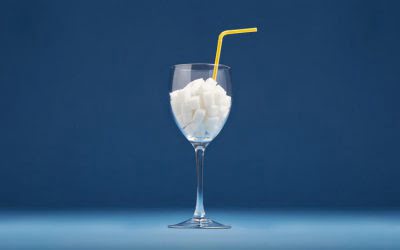This is particularly true for children who grow up in alcoholic homes, researchers report. Some examples of general life stressors include major changes like moving, starting a new job, or getting married or divorced. Illness, a death in the family, or problems at home or work can also be significant causes of stress.
- NIA scientists and other experts review this content to ensure it is accurate and up to date.
- The HPA axis, the system that deals with stress response, has been traced to symptoms of alcohol withdrawal.
While quitting altogether provides the greatest benefit, the authors say that even cutting back to a low risk level can help and could be a more achievable goal for those with alcohol use disorder. Research suggests that both quitting and cutting back on your alcohol consumption can provide benefits for your brain by reducing the amount of shrinkage https://g-markets.net/sober-living/alcohol-tolerance-wikipedia/ in certain regions. Ashley Loeb Blassingame — a certified alcohol and drug counselor, relapse prevention specialist, and interventionist — had several tips for reducing alcohol consumption. They looked at those who entered treatment and either stopped drinking; resumed drinking, but at low-risk levels; or resumed drinking at higher-risk levels.
How Sustainable Is Alcohol? 60+ Ethical Alcohol Brands For Better Drinking
However, other studies have found that catastrophe-induced increases in alcohol consumption tend to wane after a year and other studies have found no increases in alcoholism following major disasters. Alcohol causes higher amounts of cortisol to be released altering the brain’s chemistry and resetting what the body considers “normal.” Alcohol shifts the hormonal balance and changes the way the body perceives stress and changes how it responds to stress. Physiologically, stress is defined as anything that challenges the body to function in its usual fashion. Injury, illness, or exposure to extreme temperatures can cause stress to the body.

Distillation creates large amounts of waste in the form of leftover mashed grain. Food waste is a major global issue, with 1.3bn tonnes of food wasted annually. The alcohol industry creates 42 million tonnes How To Cure Boredom: 7 Ways To Stop Being Bored of spent grain each year, while distilleries can produce 12 times as much wastewater as the amount of alcohol produced. Despite global economic downturns, one thing people are still doing is drinking.
Harm reduction and alcohol use disorder
Australian wine brand The Hidden Sea aim to remove 1 billion plastic bottles from the world’s oceans by 2030. For each bottle of Hidden Sea wine bought, 10 plastic bottles are removed from the ocean in a trackable process, thanks to a partnership with ReSea Project. After purchase customers receive a QR code which helps them track development. Rocky Ridge Brewing Co is based in Western Australia, and are firm believers in slow food principles. All of their farming practices are organic, while they utilise waste reuse and minimise fertiliser application.

This support fosters the motivation and self-confidence needed for sustained sobriety. In fact, getting sober and sustaining sobriety is easier when you have a trusted support system motivating, encouraging, and supporting you along the way. A study from Substance Abuse indicates that having support from others can improve a person’s chances of engaging in and completing detox and treatment for addiction. For different patients, both alcohol use disorder (AUD) and its recovery will play out differently. Here, we provide tips to help you understand and support your patients with AUD as they forge their individual paths to recovery. You’re spending less time on activities that used to be important to you (hanging out with family and friends, going to the gym, pursuing your hobbies) because of your alcohol use.
How alcohol affects safety
You may also need to change your route to work or home in order to avoid any triggers, or people, places, or things that make you want to use drugs or drink again. If PAWS is severe or if you’re experiencing prolonged symptoms, a medical professional can help you work through them and remain in recovery without relapse. This article discusses what sobriety means and describes strategies that can support your long-term recovery. It also covers tips on how to deal with the challenges you’ll face on your journey to sobriety. If you feel comfortable doing so, discuss your challenges with your primary healthcare professional.
- All of their farming practices are organic, while they utilise waste reuse and minimise fertiliser application.
- The best way forward for your recovery from alcohol or substance use is to incorporate a wide variety of strategies that will help foster success.
- One of the most profound ways that alcohol affects you is through what it does to your body.
- As recently proposed, focusing on functioning rather than drinking practices per se may be more useful when defining successful AUD recovery and forecasting how an individual will fare over the long run4,13,16,17,45.
- RC members were also referred internally to, for example, counselling services so that they felt comfortable and safe in familiar surroundings.
- Sometimes this is a result of major life changes, such as the death of a spouse or other loved one, moving to a new home, or failing health.
Pretending that nothing is wrong and hiding away all of their fears and resentments can take an enormous toll. Children are especially sensitive and can suffer long-lasting emotional trauma when a parent or caretaker is an alcoholic or heavy drinker. One common mistake for those who are new to alcohol and drug recovery is substituting a new compulsive behavior for their old one. People new to recovery can find themselves approaching their new diet, exercise program, job, and even participation in support groups with a compulsion that echoes addiction. For many people with a substance use disorder, it’s simply a matter of never having learned the appropriate way to manage anger. Talk to your therapist, other healthcare provider, or sponsor about how to deal with your anger in ways that won’t cause you to harm yourself or others or turn to alcohol or drugs.
